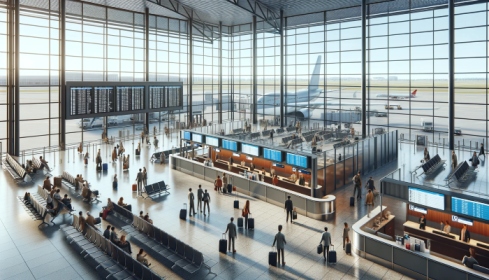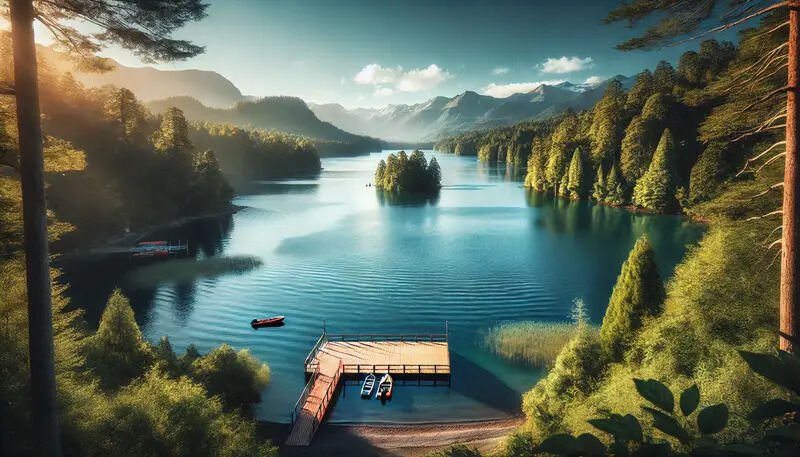Monday, September 9, 2024 The Makkah Mayoralty has undertaken the construction of the first stone park in the holy city, covering an area of approximately 1,000 square meters. The initiative is part of broader park development projects aimed at enhancing public spaces and promoting environmental sustainability within Makkah. The project, which uses recycled materials and leftover stones from various construction initiatives in the city, is expected to have far-reaching implications for travelers, particularly in terms of eco-friendly tourism and urban aesthetics.
The mayoralty’s decision to utilize these recycled materials aligns with global trends in sustainable urban development, which emphasizes minimizing waste and repurposing resources. By incorporating these principles into the creation of public spaces, the project aims to improve the visual appeal of parks and public facilities while also creating unique environments that reflect Makkah’s natural beauty and cultural heritage. A key objective of the stone park project is to achieve environmental sustainability through the optimal use of material and natural resources.

This means using locally available materials to reduce environmental impact while simultaneously ensuring that the park remains in harmony with the surrounding architecture and landscape. The utilization of leftover stones from other construction projects is a significant step in reducing waste, thus supporting global environmental goals. The mayoralty’s focus on sustainability also reflects a broader trend within the travel industry, where eco-conscious travelers are increasingly seeking out destinations that prioritize environmental responsibility.
Makkah’s efforts to incorporate sustainable technologies into its urban planning are likely to make the city more appealing to this growing demographic, particularly as global awareness around climate change continues to rise. The construction of the stone park will offer new public facilities that cater to both residents and visitors. These include seating areas, educational paths that explore the historical and geological significance of the stones, and designated play areas for children.
Such features are expected to enhance the overall travel experience in Makkah by offering tourists and pilgrims more green spaces to relax and reflect. The use of durable stone materials ensures that the park will be easy to maintain, reducing the need for frequent repairs. This is particularly important for Makkah, a city that sees millions of visitors each year, as the durability of public facilities is crucial to accommodating such large numbers.
The low-maintenance nature of the materials will also help in managing the city’s resources more effectively, ensuring that public spaces remain in good condition despite heavy use. One of the innovative aspects of the stone park’s design is its adaptability to local climate conditions. The rocks and stones used in the park are designed to withstand temperature fluctuations and rainfall, making the park resilient to Makkah’s changing weather patterns.
This consideration is crucial, as it ensures that the park remains a viable space for both residents and visitors throughout the year. Moreover, parts of the park can be easily modified in response to future urban development or environmental changes. This flexibility makes the park not only a long-term investment in Makkah’s public spaces but also a model for other cities looking to incorporate sustainable urban design into their landscapes.
The development of Makkah’s first stone park is part of a larger trend toward sustainable tourism, which is becoming an increasingly important factor in destination choices for global travelers. As cities around the world focus on environmental sustainability, projects like this one will attract eco-conscious visitors looking for green spaces that reflect local heritage while promoting environmental responsibility. For pilgrims visiting Makkah, the new park offers a serene and educational environment that enhances their travel experience.
Its focus on local heritage, sustainable materials, and climate adaptation aligns with the growing global demand for environmentally friendly travel options. Additionally, Makkah’s efforts to innovate in public space design could inspire similar projects in other cities, further promoting eco-tourism on a global scale. The Makkah Mayoralty’s construction of the stone park represents a forward-thinking approach to urban development that prioritizes sustainability, local resources, and minimal environmental impact.
This initiative not only benefits residents and visitors in Makkah but also serves as a model for other cities aiming to enhance their public spaces in a manner that is both environmentally friendly and culturally significant. For the travel industry, this project highlights the increasing importance of sustainability in destination development, paving the way for more eco-conscious tourism in the future..



















